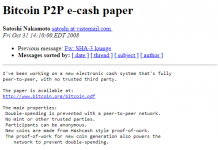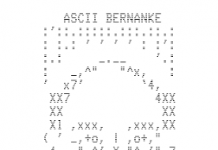When the increasing impact of the digital economy in our daily lives areconsidered, as opposed to popular belief on the media, it was not a surprising development that most of the people have recently started to use cryptocurrencies. However, it might not be expected that these new currencies would become so in demand all around the world in such a short time. The most famous “prototype” and still the most used example of these new currencies, Bitcoin, celebrates its tenth year today and cryptocurrency enthusiasts from all over the world is joining in on this celebration.
Very little people got acquainted with this cryptocurrency on the 18th of August 2008 when the domain “Bitcoin.org” was registered after which the first whitepaper of Bitcoin was released on the 31st of October 2008 by Satoshi Nakamoto, the writer of the official document, and the so-called “creator” of Bitcoin.
The world’s first Bitcoin transaction occurred on the 12th of January 2009, and a user received 10 Bitcoins by Satoshi himself. Although back in 2009 Bitcoin had almost no worth, today that 10 Bitcoins worth would be well above $60,000. The main reasons behind the dramatically increasing value of Bitcoin can be considered the efforts of a increasing number of people in a wide range of sectors from art to journalism to boost the use of this digital “currency”.
For example, today, an art gallery in London’s famous Cork Street offer people a paying option by using Bitcoin. Eleesa Dadiani, owner of the gallery, believes that the cryptocurrency will become as common as cash or credit card in the near future and the art will be available for purchase using several different cryptocurrencies. Likewise, a group of crypto-friendly artists from different countries will meet in France to celebrate the upcoming tenth anniversary of Bitcoin by organizing an exhibition that shows the possible use cases of cryptocurrencies.
So what exactly is Bitcoin and why is it attracting so much attention?
The last tendency to the new cycle of “disruptive” innovations has become the core notion of Bitcoin before the decentralized digital currency gained popularity all around the world. It was the first cryptocurrency, and described by Nakamato as “a peer to peer electronic cash system.” According to him, what was needed is an electronic payment system based on cryptographic proof instead of “centralized trust”, allowing any two willing parties to transact directly with each other without the need for a trusted third party.
Bitcoin is a peer-to-peer digital cash system which is a chain of chronologically ordered blocks with their own timestamps. The workers of the system generate blocks which execute the transactions between people and add them to the chain, so Satoshi did not only propose Bitcoin but also the Blockchain technology itself with this innovation. As a result of each transaction in Bitcoin, a new bitcoin, which denoted as UTXO (unspent transaction output) is minted with value and script for indicating who can further spend it. Everyone in the network has a private key, public key, and address so that the rest can send Bitcoin to these publicly announced addresses. Moreover, it can only be spent by the parties who can prove possessing the private key. As a primary quality of digital assets, these can be easily copied, multiplied and manipulated. So, the double-spending problem may reveal at digital cash systems. Blockchain technology offers a solution to the general double-spending problem by using its unique decentralized ledger that is based on the “proof of work” principle.
The most important function of Bitcoin and other cryptocurrencies appears to be the individual autonomy that was perceived and executed as a context of voluntary participation to the coin markets and the emergence of individuals in the network that would become more dedicated members of their communities later on. According to this assumption, it is not surprising to say that self-investment issues and self-care are honored by market commitments. This could be made possible only by the Bitcoin market in the digital age. It means that the rise of freedom to act effectively in the market is now appears to be possible as a lack of a governing power such as a “third party” during a transaction activity. Accordingly, it can be said that the premise of individual autonomy and freedom are one of the most significant motivations for Bitcoin users.
On the other hand, while rhapsodizing over the functions of Bitcoin, it is necessary not to ignore some considerable claims supporting the cryptocurrencies’ detrimental impacts on people’s lives that overshadow the opportunities provided by the very mechanisms that eliminate any third party responsibility in financial transactions.
We should take also take into account that the primary reference point of these kinds of criticisms is the basis that Bitcoin sits on, achieving to be the mostly used tool for illegal and criminal activities in its early times. The new currency has been considered a tool for money laundering, buying and selling illicit drugs, weapons and even it has become a main instrument for hackers to make personal hacking easier and more impactful. Hovewer, it should be noted that it is also possible to observe these kinds of traditional or cyber-crimes before the invention of Bitcoin. Thus, at this stage, it is more reasonable to focus on the empowering and innovative capacity of Bitcoin in both professional and private lives rather than its employment just as a tool to making exchanges of “bad” values easier.
As people’s interest in both Bitcoin and Blockchain technology is continuously increasing, most of the investors and experts are also becoming active in cryptocurrency markets day by day. What was proposed by originally by Satoshi is made into more scalable and more empowering subjects with the introduction of decentralized applications on Ethereum. Today we are celebrating not only the Bitcion itself, but also the birth of the concepts of “decentralized, trustless, borderless, scalable operations and applications”.
Happy tenth “birthday” Bitcoin and thank you for opening the doors to a better world!




















